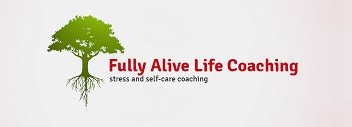
Stress and Listening
When we do not feel heard, we feel frustrated. Not being able to communicate what you are feeling as well as not feeling listened to can be stressful. This is because as human beings, we all need to feel loved and heard. We need some attention and meaningful social interactions. In schools, some teachers instill rules for “good listening.”
 This poster is a great reminder that it takes some effort to actually execute good listening. Good listening is focused or active listening. The first step to active listening is getting in touch with the body’s sense of a particular situation or issue. The old adage, “know thyself” is key before trying to help or listen to others. Recognize your own emotional and physical status. If you are having a rough day, then you will have to work even harder to pay attention to other people’s emotional status.
This poster is a great reminder that it takes some effort to actually execute good listening. Good listening is focused or active listening. The first step to active listening is getting in touch with the body’s sense of a particular situation or issue. The old adage, “know thyself” is key before trying to help or listen to others. Recognize your own emotional and physical status. If you are having a rough day, then you will have to work even harder to pay attention to other people’s emotional status.
The next step is to focus in on the situation. Pay close attention to the particular event and/or feelings around the event. Look for specific words or images then come to describe the felt sense. For example, when you see a fellow friend or colleague walking around the office, look for his or her body language. Is he or she looking down or up? Notice his/her facial expressions. Are his/her shoulder and neck bent a certain way? Notice tone of voice. Listen to the words this person uses….are they positive, neutral, sarcastic?
The next component is the focusing attitude. It entails staying respectful, friendly, and welcoming towards whatever emerges. If you are judgmental and critical, that attitude stifles the inner voice and closes off communication with your deeper self. Active listening requires you to be mindful of other people’s emotional vibes and then also keeping your own emotional status in check at the same time. It can be an incredibly difficult task.
Although, it can also be an incredibly freeing task. Nurses, often use this focused listening on the job. This sort of focused listening gets their focus off of the immediate traumatic stress and puts the focus on the client. Not only does this help the nurse to distract from stress, it also improves the treatment and care that the hospital provides. Through active listening, you may be able to distract yourself from your own stress by focusing in on someone else. Also this becomes win-win as you can make someone else’s day by actively listening for them.




















